I) Introduction
I would like to talk about the topic of interculturality and inculturation, or in other words, the area of interculturality and inculturation within the chapter core "Construction of the Pious Schools".
I could start this topic by analysing or defining what we mean by culture, but this time I have chosen a different path. I will not give definitions, but try to challenge your imagination. I want you to remember the Trappist community in Algeria, in the Atlas Mountains, the monks of the monastery of Tibhirine. Perhaps you have seen the film "Of Gods and Men".
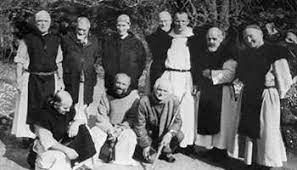
Trailer: https://cineuropa.org/es/video/rdID/143041/f/t/
I would like to use this film as a springboard to explain the importance of inculturation and interculturality, because it goes beyond simply documenting the martyrdom of most of the members of the community and sheds light on the dilemma the community faced and how it resolved it.
Indeed, in her book Le temps des moines. Clôture et hospitalité (The Time of the Monks. Closure and Hospitality), French sociologist Danièle Hervieu-Léger notes that for the vast majority of her interlocutors – who are monks – the film was a significant moment, which they described as a turning point in the development of contemporary monasticism. Many described it as a milestone in their personal journey.
I think it is the way the film presents the story that gives it significance both for consecrated life in general and for monasticism in particular.
II) Analysis of a key scene of the film
1. The basic dilemma
The narrative of the film focuses on the dilemma in which the community finds itself. What is this dilemma about?
The dilemma can be formulated as follows: Stay or go? It is not a practical question, but the question of why, of the reason for everything. Why they are here, why they have chosen this life, the why of consecrated life, of everything. Of course, their fear of a violent death is great and obvious. At one point one of the monks says, "I have chosen this kind of life not to die but to live." In other words, he gave his life to live, not to end it. But that is not the end point of the discernment they make. They keep praying, thinking and discerning. And gradually another issue emerges: the motivation to give one’s life.
There is a scene where Christian - the prior - and Christophe, a member of the community, are talking. It is a beautiful moment of accompaniment by the superior of the community.
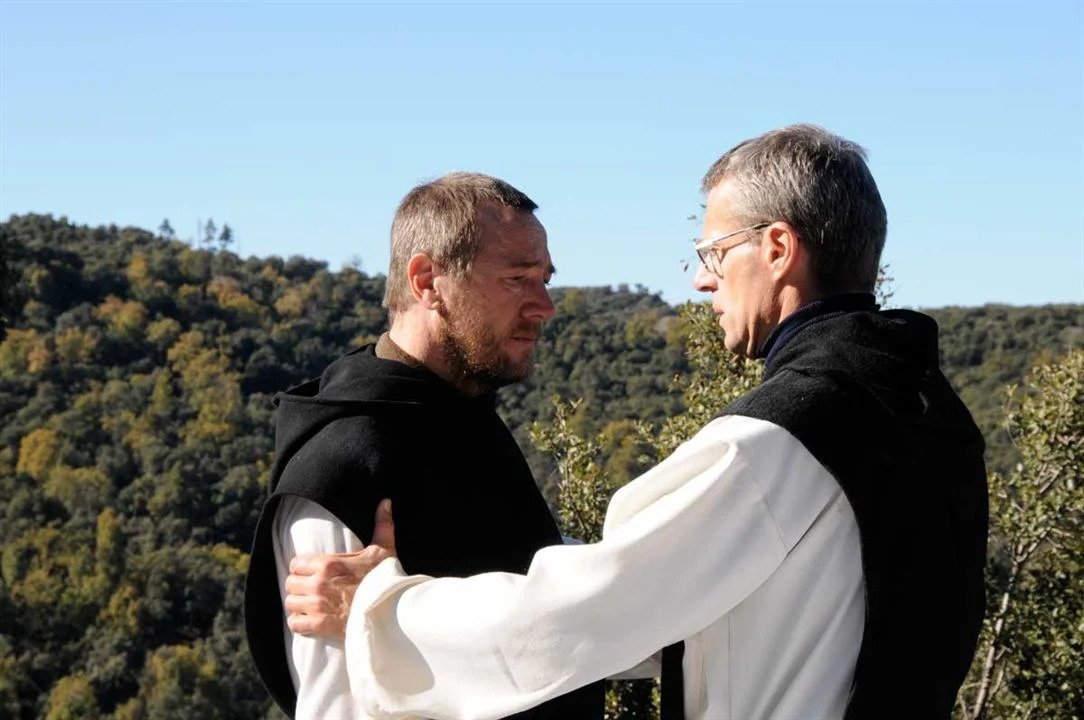
Here is their dialogue:
- Christophe: I sleep badly. The slightest noise wakes me.
I think over my life. My choices.
As a kid I wanted to be a missionary.
Dying for my faith shouldn't keep me up nights.
Dying here, here and now, does it serve a purpose?
I don't know.
I feel like I'm going mad.- Christian: It's true that staying here is as mad as becoming a monk.
Remember. You've already given your life.
You gave it by following Christ.
When you decided to leave everything.
Your life, your family, your country. The family you could have raised.- Christophe: I don't know if it's true anymore.
I pray.
And I hear nothing.
I don't get it.
Why be martyrs?
For God? To be heroes? To prove we're the best?- Christian: We're martyrs out of love, out of fidelity.
If death... overtakes us, despite ourselves, because up to the end,
up to the end we'll try to avoid it,
our mission here
is to be brothers to all.
Remember that love
is eternal hope.
Love endures everything.
2. Looking for answers, for meaning
This dialogue summarises in miniature almost the entire story of the film. It addresses fundamental questions. "Why am I here, why am I a monk?" asks Christophe. Remember your initial choices and motivations, the strong decisions to choose an identity. Then their dialogue moves on to "Who am I?" to "What is the point of dying here?"
This is already a step forward. By mentioning "here", the "why" becomes concrete, it is no longer formulated in general terms but placed in a specific perspective. In the concrete situation, general answers no longer work. The concrete answer must be connected to the constitutive moments of the situation. Here, now, among these people, what is the meaning of my life, of being a monk, what is the meaning of giving my life?
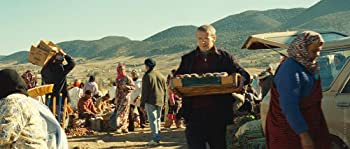
If you like, you can say that at this moment of their dialogue the aspect of inculturation comes into play.
The question to which he already had an answer as a child – what is the point of being a monk – is now posed in a concrete situation, among concrete people, in a specific context. The previous answers are not helpful here and now. They have to be rooted, the step of inculturation has to be taken.
Is inculturation an exercise in translation? Yes, but it is more than translation. More than a translation understood as a mechanical or routine process. Because without this translation, the previous answer, the answer in abstract form, is meaningless, incomprehensible: abstract, that is, lifeless, inert, irrelevant, empty. In a sense, the process of inculturation goes through the experience and suffering of meaninglessness. The previous responses are meaningless in their previous form. "I feel like I am going mad," Christophe says. In this sense, inculturation is more than translation. It is about reformulating the answer, but in such a way that it is actually a rebirth of the answer, a new formulation of the answer. The answer has to be reborn and therefore this answer is in a sense a new answer. We are confronted with the task of recreating the answer. A task whose true difficulty is revealed in the experience of meaninglessness already mentioned, which is also expressed in this acute form: "I don’t know if it is true anymore. I pray. And I hear nothing. I do not understand." Without the exercise of translation, or more precisely, without suffering the search for meaning, there is no meaning, no truth, nothing. "I don’t know if it is true anymore."
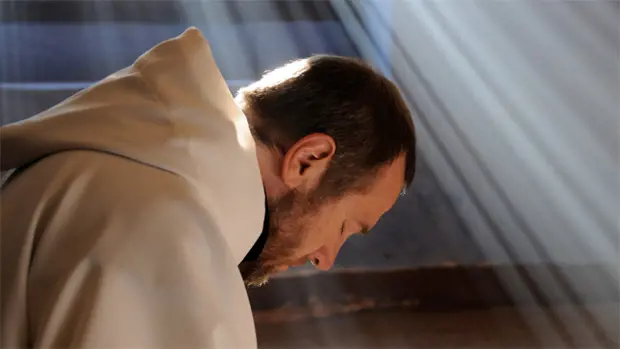 This is a process of searching for meaning, a personal and sorrowful process that can be called "inculturation". We now see that there is much more at stake than a simple translation. But let us return to the dialogue that is still going on.
This is a process of searching for meaning, a personal and sorrowful process that can be called "inculturation". We now see that there is much more at stake than a simple translation. But let us return to the dialogue that is still going on.
3. The meaning of martyrdom
The theme of martyrdom emerges: Why be a martyr, Christophe asks himself. Then, still in the form of a question, he suggests options. The way the options are presented calls them into question. God, to be heroes, to prove that we are better...
We must be clear that "God", as the name appears in this context, is only a cause. It is the "God" that can be pasted as a slogan on banners. It is the "God" that is presented as a doctrine at best, but which soon turns out to be the "God" of the clan, the "God" of the tribe. That is the reason for which it no longer makes sense.
The other two options have even less power, even less relevance. They appear as parts of the childish world in which the vocation of the martyr, the vocation of the missionary ready to die, the vocation of the missionary hero was born. Now these options are meaningless. They are empty.
Or almost...
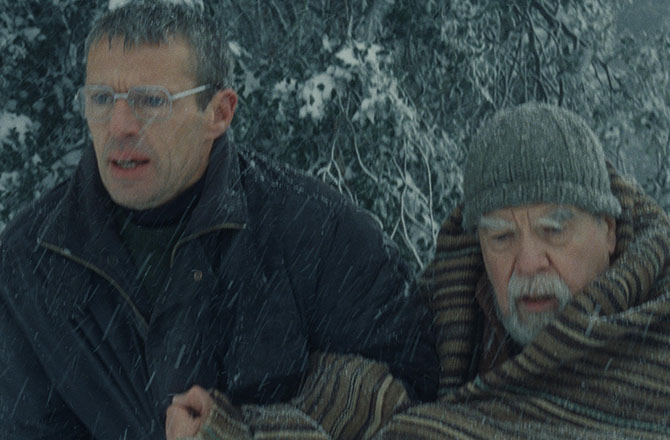
For the prior takes up the theme of martyrdom. He does not reject it. He transforms it. He connects it to the here and now, he weaves it into the texture of this place, this time, these people. It goes like this:
"We're martyrs out of love, out of fidelity.
If death... overtakes us, despite ourselves, because up to the end,
up to the end we'll try to avoid it,
our mission here is to be brothers to all.
Remember that love is eternal hope.
Love endures everything.”
The themes of mission and death frame this conversation. Both themes return at the end, but in a different, altered form. Throughout the dialogue we have explored the terrifying and horrifying spaces of the fear of death, the spaces of meaninglessness, emptiness and untruth. In the end, we arrived at love and the fidelity that is defined by love. A faithfulness that no longer binds us to a doctrine or to a truth contained in a thesis, but to the faithfulness of love for the people here. Mission also receives its impetus not from "behind", that is, not from the home left behind, not from the truth formulated in the former home, but from what lies ahead, from outside – think here of the concept of the Church going out (going forth) – from the future, from the people among whom they find themselves and to whom they are bound by the fidelity of love.
4. Mission becomes "staying" as a following of Christ: The meaning of inculturation
In the dialogue, as we have already seen, the theme of death appears from the beginning. Dying for the faith, or more precisely, dying for "my faith". And suddenly it is linked to the idea of dying here and now. Christophe expresses his doubts about such a death, that is, a death in which "my faith" is linked to the "here and now". It is this "dying for my faith" that makes no sense in this time and place. Perhaps we can put it this way: The project of being a missionary willing to die for a faith conceived as an "imported doctrine" from the home left behind makes no sense.
The prior - as already mentioned - rejects neither the idea of being a martyr nor that of being a missionary. He relocates these ideas and links them to other important elements. First, he locates them in the here and now by mentioning the concept of "staying"; and then he links them to the idea of following Christ. The last two, staying and following, are fundamental elements of monastic life, perhaps the most fundamental of all. The idea of "staying" combined with the idea of following Christ gives theological meaning to the place and the moment lived. In this way the here and now is transformed into a “locus theologicus”, a place with theological significance whose theological ("teologal") value is revealed. And all this in and through a "leaving behind". So it is not a matter of an "imported doctrine". Christ is before us, not behind us. Christ is here and now, in this place. Staying gets its meaning from this fact.
For this reason, staying becomes a project. You do not stay out of inertia. Staying is a positive act, you have to do something to stay.
In our context and in the context of our theme, we could say: to stay is to "inculturate". The missionary act or project that was meant to be a heroic, almost military act of conquest is transformed into the project of staying in following Christ. Therefore, faithfulness no longer refers to the past - not to the house, not to the teachings - but to the people here, because Christ is here, among these people. He must be discovered among these people. That is the goal of inculturation.
We started with the question of why and for what we are. In fact, the fundamental question was the question of identity: who are we? This question is all-encompassing. Therefore, it is very important to recognise the arrival point of this dialogue. Because the point where the conversation ends is the Other. The Other as a theological place. And this tells us emphatically that it is not possible to define ourselves and that it is not possible to give us answers to the fundamental question of our life, our vocation and our mission without the Other. Without the Other, the answers to our fundamental questions would be empty, meaningless, without content: in short, they would not be true.
"We are martyrs out of love, out of fidelity. [...] our mission here is to be brothers to all. Remember that love is eternal hope. Love endures everything.”
But there is still something to be said here. We need to add something, we need to be more precise. We need to clear up a misunderstanding about this love for people and especially about martyrdom.
5. A precision: the "objectification" of the other, the risk inherent in martyrdom
Through this transformation of concepts - the concept of mission and the concept of death, of martyrdom - we arrive at a different perception of the situation and, more importantly, of the people here. What shows the change of perception most clearly is found in the last words of the dialogue and can easily be overlooked or superficially considered. I refer to these words:
"If death overtakes us, despite ourselves - because up to the end, up to the end we will try to avoid it - our mission here is to be brothers to all".
What is this all about?
One might think that he is returning to the theme of fear of death and so trying to avoid death - negotiating whether they should die. But for Christian, his concern goes deeper, because it is not about himself, but about people. More generally, one could say it is about the pursuit of martyrdom or, more precisely, its rejection.
Danièle Hervieu-Léger says in her book mentioned above that we can "reconstruct "the logic of his decision" to stay and we can say that there is "little evidence of the pursuit of martyrdom understood as the ultimate witness to the Christian faith in the face of those who deny it".
The significance of this observation lies in what I believe is the most important thing we can learn from the monks of Tibhirine, as the French sociologist puts it:
"Moreover, such a pursuit - which at least implicitly postulates that one strives for the manifestation of violence that makes one a martyr - also violates the recognition of the offender's admittedly deviant but irreducible humanity."
In other words, striving for martyrdom involves striving for the manifestation of violence on the part of the person who wants to kill me, which is against the humanity of the murderer. I strive for something "better" (martyrdom), which goes against the humanisation of my killer.
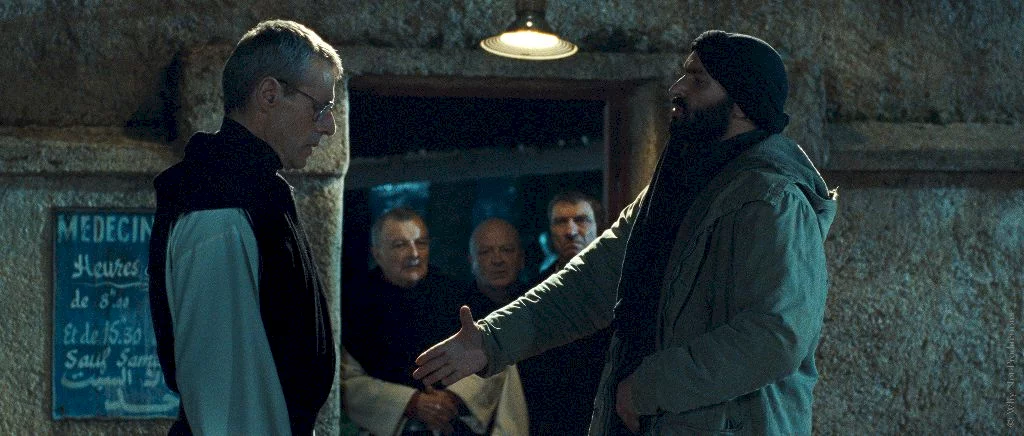
I think this is the crucial point, both for understanding the monks' decision and for understanding interculturality and inculturation. Because this point also makes us aware that even something as noble as the desire to give one's life for the faith can contain an element of violence. The violence of objectifying the "recipients" of the evangelising activity. We often show no real interest in those we call the "recipients" of our evangelising efforts. Instead of recognising them as individuals, as persons, we see them merely as means to fulfil our expectations of them.
(I think that at this point we can also see that we have become accustomed to a model of evangelisation or mission that disguises the fact that we are acting in a violent way).
This is how the Prior put it in one of his writings after the murder of two nuns and Croatian Christian workers in 1993, almost three years before his death:
"Martyrdom an hour's flight from Marseilles": sounds like a more or less tasteful tourist advertisement. And above all, what martyrdom is being spoken of here? The question is all the more pertinent as we have been surrounded by "martyrs" here for months. In one camp as in the other, everyone honours their dead with this unique title. [What kind of martyrdom are we talking about? For a long time we have understood this word in the strict sense of an explicit confession of faith in Christ and Christian dogma, even to the point of bloodshed. [...] We had to wait until the end of the 20th century for our Church to recognise the title "martyrdom" for a testimony not so much of faith as of supreme charity... Hamid, one of the young connoisseurs of the Casbah library led by Brother Henri, could testify to this: "They did not take his life, he had already given it! The fact remains that the kidnapper committed murder and that in the deliberate violence of his act, he seriously lacked the love that God inscribed in his vocation as a human being, as it is in mine. I cannot wish that on anyone. Jesus could not wish Judas' betrayal. Is it not too high a price to pay for what is often called the "glory of martyrdom" to owe it to the murderous act of a fellow human being?"
Returning to our dialogue, we now understand better what Christian means when he says that they will try to avoid death to the end. Basically, the prior means his intention to avoid death, because he wants to prevent at all costs that one of his brothers commits an act that deprives him of his humanity.
6. Mutual hospitality: interculturality
To put up with death and become a martyr is thus the consequence of "staying", which in turn is an expression of love for these people. There must be something in his relationship with these people that alone justifies his staying and consequently his death. In other words, as the prior says: “If death overtakes us, […] our mission here is to be brothers to all.” Even death cannot prevent them from being brothers for all. Their mission, their project, is to be brothers. The justification to take the risk of martyrdom must be based on the existence of this project and mission to be brothers. The seriousness, sincerity and truth of this project is measured by the seriousness, sincerity and truth of the concern for the "brother of the last hour", as Christian calls his murderer in his will. If the justification for taking the risk associated with martyrdom must come from the relationship with these people, then of course there must be an antecedent long enough to be called a human relationship, a relationship of love. This leads us to what we call interculturality.
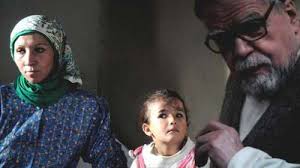
In this context, we understand interculturality as the history lived with and among these people. In other words, we understand interculturality as the realisation of my intention to follow Christ "here" in the concrete history through which I develop over the years the project of being "brothers for all", or to put it more objectively: the project of "learning to be brothers", of "becoming brothers for all". This project can be called - following Danièle Hervieu-Léger - "mutual hospitality".
To understand what this mutual hospitality is about, let us look at a fragment from another of Prior Christian's writings from 1989, more than a decade before his death. I invite you to pay particular attention to the phrases that express reciprocity, phrases that can be understood as "inter".
"We have come to define ourselves as "pray-ers among other pray-ers". The calls to prayer that come from our bell or the muezzin create a healthy mutual competition. Also, the important times of the major Muslim festivals (including Christmas) and the months of Ramadan and Lent (especially when they overlap) allow us to "walk a common path". It is a real joy to see some of our relatives spontaneously engage in this more spiritual form of socialising. Our liturgy is not very Arabic, but our intercessions during the Liturgy of the Hours or the Eucharist, especially on Fridays, and certain rites or gestures testify to a privileged attention to our surroundings. Finally, our regular relations since 1998 with our neighbours in Medea, who are involved in a Sufi brotherhood, help us to be attentive to the "concordant tones", not without a constant examination of what our faith can say about itself, so as not to extinguish the Spirit when it calls upon it through the other and its own faith.”
The monks of Tibhirine went there to live the project of mutual hospitality, but for this project they had to take the first step, the step that establishes everything and sets it in motion. Without this step, nothing would have started, the project of mutual hospitality would not have been possible. It is the step that "leads" (“primerea” in the original), as Pope Francis says in Evangelii Gaudium (24); the step that takes the initiative. Its priority is not only chronological, but the condition of possibility for all that follows. It has a generative power, just like the priority of God's love for us, of which the Letter of John speaks: "We love because he first loved us" (1 John 4:19).
What it means to love first is shown precisely in the act of accepting death. In the case of our monks – we must not forget this – the act of accepting death does not just mean the final moment, but is already contained in the decision to go there. (This is precisely the point to which the prior returns when he tries to convince his brother; to make him see this in the original decision to be a missionary, even a monk). For they became guests in a strange house, in a strange home. They had to decide to "relativise" themselves, to place their centre in another person and to live their lives in this way, in this new tension that generates life. I quote Danièle Hervieu-Léger once again:
“When one lives "as a guest" in a house that does not belong to one, does this not mean that even in the intimate familiarity that results from the closeness of ordinary life, one acknowledges and accepts the irreducibility of a distance? This distance refers not so much to the strangeness of another religion and culture, but to the irreducibility of a divine plan that is too often confused with the uniqueness of a single religious narrative. It was, as Prior put it, about «recognising the faith of the other as a gift from God that is, of course, mysterious. It demands respect. It acquires its full meaning only at the top of the ladder that leads us back together to the only Giver. And this gift to the other should also nudge me in the direction of what I have to confess».”
What is clearly seen here is the realisation of what we call "interculturality". Living one's faith in relation to the other who is different, in a dynamic of total commitment: of love, which we have called "inculturation".
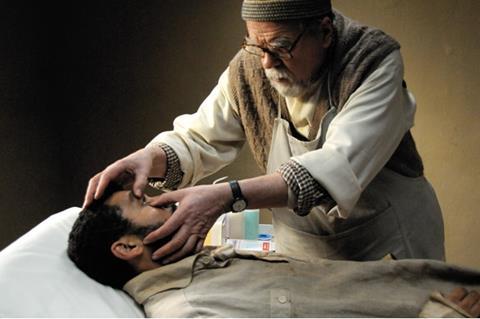
To evaluate this project - the project of becoming brothers to all people, the project of mutual hospitality - it is good to quote a conversation from the film. One of the monks, Paul, explains why they are thinking of leaving:
"We are like birds on a branch, we don’t know if we’ll leave," says one of the monks.
But a woman answers him: "We are the birds. You’re the branch.
If you go, we lose our footing."
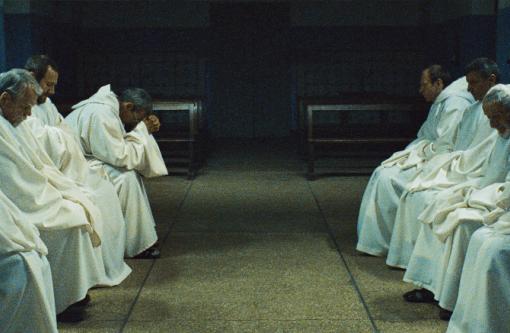
III) Conclusion
The "theme" of inculturation and interculturality calls us to build up the Pious Schools, starting from the others. So perhaps it would be better - at least in this context - to put it this way: What we are called to build is not the Pious Schools per se, but rather the Pious Schools as part of the project of being - or learning to be - brothers of all. The project of living in "mutual hospitality", as we have seen.
Calasanz invites us to this project when he speaks in his letter of our vocation to lower ourselves to give light to children, especially those abandoned by all, which is translated in our Constitutions as "poor among the poor and a child among children".[1]
[1] This is the term that appears in the Spanish version: General Curia of the Pious Schools: Constitutions of the Order of the Pious Schools, Madrid, 2004, C19.
- A hozzászóláshoz regisztráció és bejelentkezés szükséges